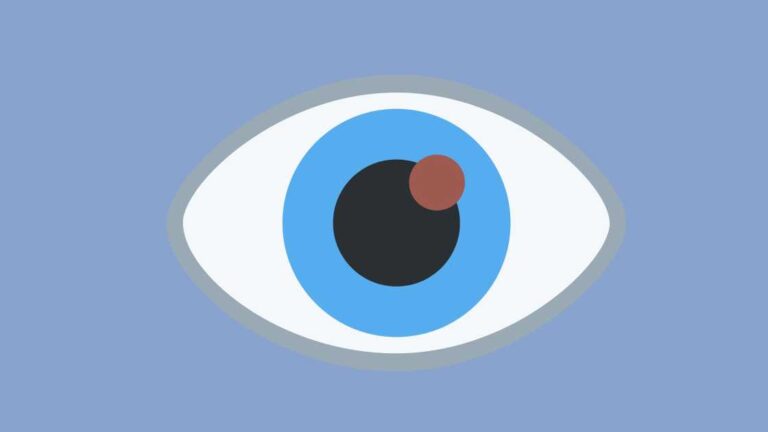The inability to see anything, including light, is known as blindness. You have reduced eyesight if you are partially blind. For instance, you could be unable to tell apart the shapes of objects or have a fuzzy vision.
When you are completely blind, you have no vision at all. Blind individuals are on par with people who aren’t blind in all respects, and they can cry if specific circumstances are satisfied. Blind people can cry for as long as their tear ducts are intact.
Blindness: What is it?
Lack of vision is the simplest definition of blindness. The term “visual impairment” is used more appropriately in the medical field to describe it. Visual impairment has been described as a total or impaired ability to see objects that in turn influences the day-to-day activities of the individual.
When lost eyesight may be restored by surgery or other medical interventions, visual impairment can be reversed. When the harm cannot be undone, it is irrevocable.
Can Someone Who Is Blind Cry Tears?
A lot of people think that blind people cannot cry because their eyes are dysfunctional. But that is just a misconception. The truth is that your ability to cry is not necessarily connected to your ability to see. Tears originate from the lacrimal glands (tear glands) which are located above the eyeball.
The tears then drain through the tear duct into the eyes. The triggers for the release of tears include emotions and irritants such as smoke or dust. Hence, the eyes just serve as a passageway for tears to get out of the body.
This means that being blind wouldn’t necessarily prevent one from producing tears. Blind people turn out to even be a lot more emotional than sighted people. This is because they tend to depend a lot more on their other senses since one of their senses is deficient. As such, they may even shed more tears than sighted people.
Even if they injure their eye, a blind individual can still cry if their tear duct is still functional. Since their tear ducts are normal, people who are born blind can cry just like sighted people. However, if a person’s tear ducts are damaged in an accident, they may not be able to cry.
What results in blindness?
Blindness may result from any of the following eye problems or illnesses:
- Different eye illnesses known as glaucoma can harm your optic nerve, which transmits visual data from your eyes to your brain.
- The area of your eye that allows you to see fine details is destroyed by macular degeneration. Older folks are generally affected.
- Having a cataract impairs vision. Older persons are more likely to have them.
- It can be challenging to perceive details if your eye is sluggish. It might result in eyesight loss.
- Optic neuritis is an inflammation that can impair eyesight either temporarily or permanently.
- Damage to the retina is referred to as retinitis pigmentosa. Only very rarely does it result in blindness.
- Blindness may also result from tumors that influence the retina or optic nerve.
What signs or symptoms indicate blindness?
You cannot see anything if you are entirely blind. Having partial blindness can cause the following symptoms:
- hazy vision
- being unable to discern shapes
- just observing shadows
- a lack of night vision
- narrow focus
Exactly how is blindness identified?
Your blindness or partial loss of vision will be better understood after a complete eye examination by an optometrist.
Your ophthalmologist will do a series of examinations to determine:
- the sharpness of your perception
- the role of the eye muscles
- your pupils’ sensitivity to light
Using a slit lamp, they’ll check your eyes’ general health. It is a high-intensity light and a low-power microscope.
Basically, how is blindness managed?
One or more of the following may aid in the restoration of vision in some cases of vision impairment:
- eyeglasses
- put on lenses
- surgery
- medication
Your doctor will give you instructions on how to manage with restricted vision if you develop partial blindness that cannot be treated. For instance, you could use an optical magnifier to read, make your computer’s text bigger, or use audio clocks and audiobooks.
Complete blindness necessitates adopting new perspectives and developing new abilities. You might have to learn how to, for instance:
- Braille reading
- Use a guide dog
- Get your house in order so that you can find items quickly and safely.
- To distinguish between bill amounts, fold money in different ways.
Additionally, you can think about purchasing certain adaptable goods, such as a special smartphone, a color-identifying device, and accessible cookware. Even adaptable sports equipment is available, such as sensory soccer balls.
How may blindness be avoided?
Get routine eye exams to identify eye conditions and stop vision loss. If you are diagnosed with glaucoma or another eye issue, using medicine to manage the illness can help you avoid going blind.
The American Optometric Association advises having your child’s eyes checked to help avoid vision loss:
- at the age of 6 months
- at the age of three
- between the ages of 6 and 17 every year
Make an appointment with their eye doctor right away if you experience vision loss symptoms in between scheduled visits.
Summary
A blind person can still cry if their tear duct is still working, even if they hurt their eye. People who are born blind have regular tear ducts and can cry like everyone else. They might not be able to cry, though, if an accident damages their tear ducts. It is the same as everyone else’s.
Frequently asked questions (FAQs)
Do those who are blind possess enhanced senses?
Although blind people don’t have superhuman senses, they do rely on their other senses to get around in the world. For those who are blind, hearing is their primary sense, while for those who are sighted, it is vision. Blind people therefore rely on their hearing to follow a movie when the latter is preoccupied watching it.
In other words, those who are visually challenged rely on their hearing, whilst those who are sighted tend to pay less attention to it because they are focused on looking at information. As a result, there is a misperception that blind persons have better developed hearing abilities when in reality, they merely rely on it more to understand the outside world.
Do blind individuals have dreams at night?
A blind person also dreams in the same way that a sighted person does, using their active senses. People who lost their sight later in life claim to have vivid dreams, albeit these dreams gradually become less vivid with time. Blind people also dream, and they perceive their dreams with their active senses. They don’t see images like sighted people do, but they may hear and feel a dream.
Can blind people use smartphones and computers?
Some visually impaired people have some peripheral vision, which enables them to use a magnifier to view a computer or smartphone screen. However, those who have a larger degree of vision loss can use the computer in two different ways with the aid of assistive technology.
A Braille display that is connected to a computer and turns the text into Braille line by line is one method. A screen reader, which reads out the data displayed on the computer screen, is another method of computer access. The latter is used on smartphones as well, where users can access their phone using assistive technologies like Talkback or Voiceover.
Are blind persons required to appear blind?
Many people who are blind or partially sighted express their anger at sighted people who dismiss their visual impairment. Regardless of their visual impairment, blind people learn how to communicate with others and how to perform tasks. In actuality, it’s thought that 2% to 8% of blind people use a cane to get around.
Others rely on their sighted guide, their partially sightedness, or their guide dog. Aside from navigation, blind people can essentially perform all sighted people’s daily activities. They can cook, put on makeup, and just be independent. Blind persons can be independent with the use of products or technologies that are accessible and their own strength of will. This eventually leads sighted people to doubt their own eyes.
Blindness is not a lack of light.
People who can see tend to believe that if they close their eyes, they can see what blind people see. But that is so far from the truth. Due to the diverse causes of blindness, there are many forms of sight loss.
While some blind people may be able to distinguish colors, others may only be able to make out large objects in their peripheral vision. Light perception, which includes tunnel vision and many other types of blindness, is the ability to distinguish between various lights.
However, it’s important to keep in mind that those who were born blind cannot identify whether they see total darkness or not because, well, they simply can’t.







Leave a Comment